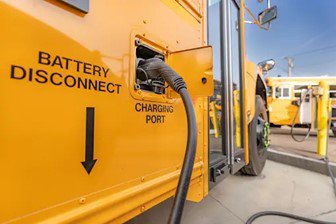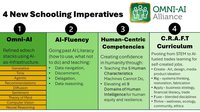State Board sets new minimum instructional days. What that means for four-day districts – By Ryan Suppe – ID ED News
The State Board of Education Wednesday voted to set minimum instructional days for K-12 public schools. But the change is unlikely to significantly affect school calendars, including for districts on four-day weeks.
The decision satisfies a provision in the jumbled House Bill 521 and a followup bill, which together sent $1.5 billion to school districts for construction needs. The bills also directed the State Board to establish minimum instructional days for K-12 schools on top of existing minimum instructional hours — the baseline number of hours in a classroom each year. School districts must attest that they abide by the minimum days or the minimum hours to qualify for their share of the facilities funds.
On Wednesday, the State Board voted unanimously to set a minimum of 152 instructional days, following a Department of Education recommendation. Starting in 2025-26, when the new minimum takes effect, districts can satisfy classroom time standards using days or hours.
All Idaho school districts currently abide by the minimum hours, rendering Wednesday’s decision largely moot, but it wasn’t entirely trivial — it closed the book on a tense few months for districts that operate on four-day weeks. An obscure provision in HB 521 included more stringent prerequisites for facilities funds, including minimum instructional days and teacher contract days. Lawmakers passed a followup bill, House Bill 766, to soften the requirements, after school leaders raised concerns that a high minimum of days could upend four-day calendars.

Louisiana is trying to expand internet access. Rural schools say it's taking too long. – By Elyse Carmosino, The Advocate
Like most school superintendents, Al Simmons often brings work home with him.
But unlike school chiefs in urban areas, Simmons can’t rely on his home internet in rural Louisiana. Instead, he pays for a mobile WiFi device and uses his phone as a hotspot.
“It’s part of my job, so I’ve invested in those things,” said Simmons, superintendent of the Winn Parish school system. But, “it’s not cheap.”
Simmons is not alone: More than 1 in 3 residents in his north Louisiana parish lack access to affordable, high-speed internet, according to state data.
Winn is one of many remote areas in the state where limited internet service makes it harder to work and learn. This “digital divide” between rural and urban areas posed huge challenges during the pandemic, when many rural students couldn’t participate in online learning. But unreliable internet access continues to hold back many students today, especially as virtual learning becomes a bigger part of education.

Tennessee fourth graders show big gains on state literacy tests as third graders hold steady – By Marta Aldrich, Chalkbeat
Tennessee fourth graders showed significant improvement on state tests for English language arts, while third grade scores were mostly steady after achieving historic gains last year, state officials said Thursday.
Fourth-grade proficiency increased by 2.9 percentage points to an overall rate of 46.4%, while third-grade proficiency improved by a half percentage point to 40.9% on tests used by the state to gauge reading levels under the Tennessee Comprehensive Assessment Program, or TCAP.
The rates are the highest since the state raised its academic standards in 2010 after receiving an “F” in 2007 from the U.S. Chamber of Commerce for low academic expectations and for truth in advertising on its K-12 public education performance.
The state education department also reported fewer fourth graders scored “below expectations,” the bottom category for gauging proficiency.

A new emphasis on electrifying NJ’s school bus fleet – By Hannah Gross, NJ Spotlight News
New Jersey is inching toward getting more electric school buses on the road, replacing its sizable fleet of fossil-fueled vehicles with their adverse environmental and health impacts for children.
Several school districts and private bus companies are already taking advantage of state and federal grants to speed the transition to electric school buses. A bill moving through the Legislature also aims to make it easier for schools to rent or buy electric school buses outside of a grant program.
The bill (A-1677), which advanced out of the Assembly Education Committee last week, would extend terms for lease and purchase contracts for electric school buses to last the service life of the bus. The New Jersey School Boards Association would also help local districts obtain electric school buses by working as a government aggregator.












